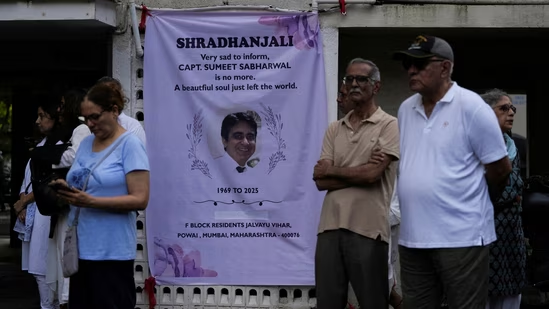
India
In the wake of intense media coverage surrounding the tragic Air India Express crash, the United States’ National Transportation Safety Board (NTSB) has issued a sharp response, calling out several news reports for being “speculative” and premature — particularly those that place blame squarely on the pilots involved.
The strong rebuttal from the NTSB, a globally respected transportation safety body, emphasizes the need for restraint, accuracy, and patience during ongoing investigations. The incident in question — the Air India Express crash that occurred at Kozhikode Airport in Kerala in August 2020 — claimed 21 lives, including both pilots, and left over 100 passengers injured.
Media Trial Before the Final Report?
Several Indian and international media outlets recently published stories allegedly based on leaked information from the investigation into the crash. Some of these reports have portrayed the pilots as primarily responsible for the accident, citing decisions related to landing approaches, communication issues, and cockpit conversations.
These narratives, however, have been labeled “premature” and “misleading” by the NTSB. In an official statement, the U.S. agency clarified that the analysis is still ongoing and that it is inappropriate to draw conclusions until the final report is completed and publicly released. The NTSB has been assisting the Directorate General of Civil Aviation (DGCA) and India’s Aircraft Accident Investigation Bureau (AAIB) due to the involvement of a U.S.-manufactured Boeing 737 aircraft.
NTSB: “Speculation Undermines the Process”
The NTSB’s spokesperson noted, “Speculation and unverified conclusions in the media do a disservice to the victims, their families, and the investigators who are working with utmost precision and professionalism.” The agency added that such reports can influence public perception unfairly, impact morale within the aviation community, and distort the real causes that are still being thoroughly examined.
This is not the first time the NTSB has expressed concerns about premature leaks in accident investigations. As a protocol, the agency follows strict procedures to maintain the confidentiality and accuracy of its data until all facts have been verified and corroborated.
The Kozhikode Tragedy: What We Know So Far
The ill-fated flight IX 1344 was a repatriation flight under the Vande Bharat Mission, bringing back Indian citizens stranded overseas during the COVID-19 pandemic. The Boeing 737 aircraft attempted to land during heavy rain on the table-top runway at Kozhikode. It overshot the runway, fell into a gorge, and broke into multiple parts.
Initial findings from India’s civil aviation authorities suggested factors like tailwind conditions, challenging runway geography, weather, and human judgment may have contributed to the accident. However, investigators stopped short of assigning definitive blame, pending full analysis of the Flight Data Recorder (FDR), Cockpit Voice Recorder (CVR), and other technical evidence.
Pilot Associations and Aviation Experts React
Pilot unions and aviation safety experts have welcomed the NTSB’s statement. The Indian Commercial Pilots’ Association (ICPA) issued a response condemning media reports that “scapegoat” the crew. They emphasized that both pilots, Captain Deepak Vasant Sathe and First Officer Akhilesh Kumar, died while trying to save the lives of passengers under extremely difficult conditions.
An ICPA spokesperson said, “This public blame game is not only disrespectful to our fallen colleagues, but it also sets a dangerous precedent where assumptions overshadow due process.”
The Importance of Patience and Process
Aviation accident investigations are deeply technical and involve contributions from multiple agencies, including manufacturers, aviation authorities, meteorological departments, and human factors specialists. They require months — sometimes years — to reach final conclusions that can lead to safety recommendations aimed at preventing future tragedies.
Rushing to assign blame not only disrupts this process but can also interfere with the implementation of effective, data-driven solutions.
Families Deserve the Truth — Not Speculation
At the heart of this issue are the grieving families of those who lost their lives. They deserve clarity, transparency, and truth — not sensationalism. Public discourse, especially in cases involving loss of life, must be sensitive, informed, and respectful.
Conclusion
The NTSB’s condemnation of speculative media coverage serves as a critical reminder that aviation safety is not a matter of headlines but of hard facts and disciplined investigation. While public interest in the Air India Express crash is entirely understandable, it must be matched with a commitment to ethical reporting and respect for due process.
As the world waits for the final report, the focus should remain on understanding what truly happened — not rushing to assign blame before all evidence is in. Only then can we honor the memory of the lives lost and ensure that the skies are safer for everyone in the future.
Thanks For Reading